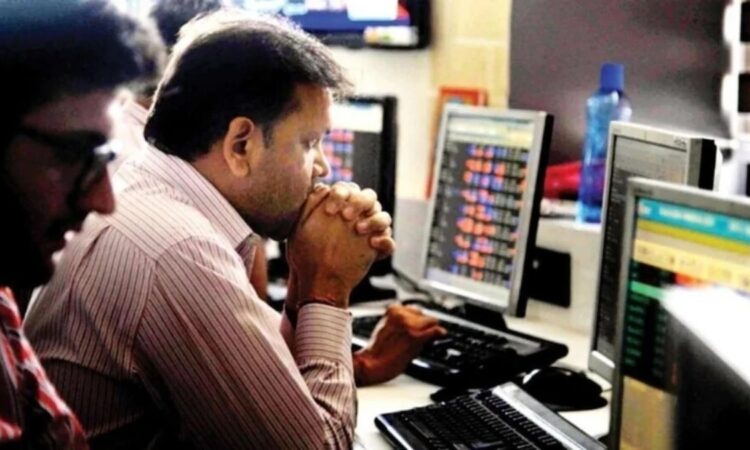
Sensex down 1,000 points. Rs 10 lakh crore wiped out. These sharp declines are becoming all too common on Dalal Street as volatility grips the market. The uncertainty on Dalal Street has left investors on edge, with even blue-chip stocks facing heavy selling pressure.
A mix of factors, including US tariff concerns, sustained foreign investor selling, and weak Q3FY25 earnings, have triggered the bloodbath on Dalal Street.
On a year-to-date (YTD) basis, both the Sensex and Nifty are down 3%, despite the positive cues from the Union Budget 2025 and the RBI’s recent rate cut.
The correction has particularly hit retail investors, many of whom are contemplating selling their holdings at a loss.
But is that the right move? IndiaToday.in spoke to market experts to understand whether investors should exit, stay invested, or take advantage of the current correction.
SHORT-TERM PAIN, LONG-TERM GAIN?
Kranthi Bathini, Director, Wealth Mills, acknowledges the widespread sell-off, particularly in mid- and small-cap stocks. “There was a carnage in the market over the last two days. A broad-based sell-off is what we are witnessing at this point,” he said.
However, he believes investors with a long-term horizon should stay invested, as these are short-term market fluctuations.
“The correction is sharp in mid- and small-cap stocks, so investors should prefer large-cap companies like Reliance Industries. Domestic-centric themes such as defence and infrastructure remain attractive. Any dip in these segments can be an opportunity to invest,” Bathini added.
Dr. V K Vijayakumar, Chief Investment Strategist at Geojit Financial Services, pointed to global factors impacting sentiment, particularly US tariff concerns. “Trump’s tariff tantrums have been impacting the markets for several days. The shift from targeting specific countries to imposing import tariffs on steel and aluminium globally has aggravated concerns. The European Union’s declaration of counter tariffs has raised fears of a full-blown trade war,” he said.
He also noted that while the market is oversold and a pullback is likely, foreign institutional investors (FIIs) may continue selling into any rally, capping the upside. “Investors can use the current weakness to switch from mid- and small-caps, which remain overvalued, to fairly valued large-caps,” Vijayakumar advised.
IS THIS A BUYING OPPORTUNITY?
For long-term investors, the ongoing correction may offer an entry point into mutual funds. Sameer Mathur, MD and Founder of Roinet Solution, suggested a systematic investment plan (SIP) approach. “Despite market volatility, we recommend investing in phases through SIPs, with a preference for large-cap and flexi-cap funds. Investors should adopt a long-term perspective of at least five years for steady returns,” he said.
For conservative investors, he recommended balanced or hybrid funds, which could offer better returns than fixed-income assets while mitigating risk.
Mathur also highlighted the resilience of the Indian mutual fund industry. “While global uncertainties and market ups and downs may cause some concerns, India’s strong economic foundation, supportive policies, and growing investor confidence continue to drive the industry forward,” he said.
He advised SIP investors to review their portfolios and consider diversifying beyond sectoral or thematic funds into a more balanced mix, including Large and Mid-Cap Funds. “More than anything, staying invested and keeping a long-term perspective can make all the difference. As the saying goes, don’t try to stop the storm—stay steady, and it will pass,” he added.
WHAT SHOULD INVESTORS DO NOW?
While the near-term outlook remains uncertain, experts suggest a balanced approach.
Large-cap stocks, domestic-focused themes like defence and infrastructure, and phased investments in mutual funds could be potential strategies.
Instead of panic selling, investors may benefit from using this correction to realign portfolios for long-term wealth creation.
(Disclaimer: The views, opinions, recommendations, and suggestions expressed by experts/brokerages in this article are their own and do not reflect the views of the India Today Group. It is advisable to consult a qualified broker or financial advisor before making any actual investment or trading choices.)

